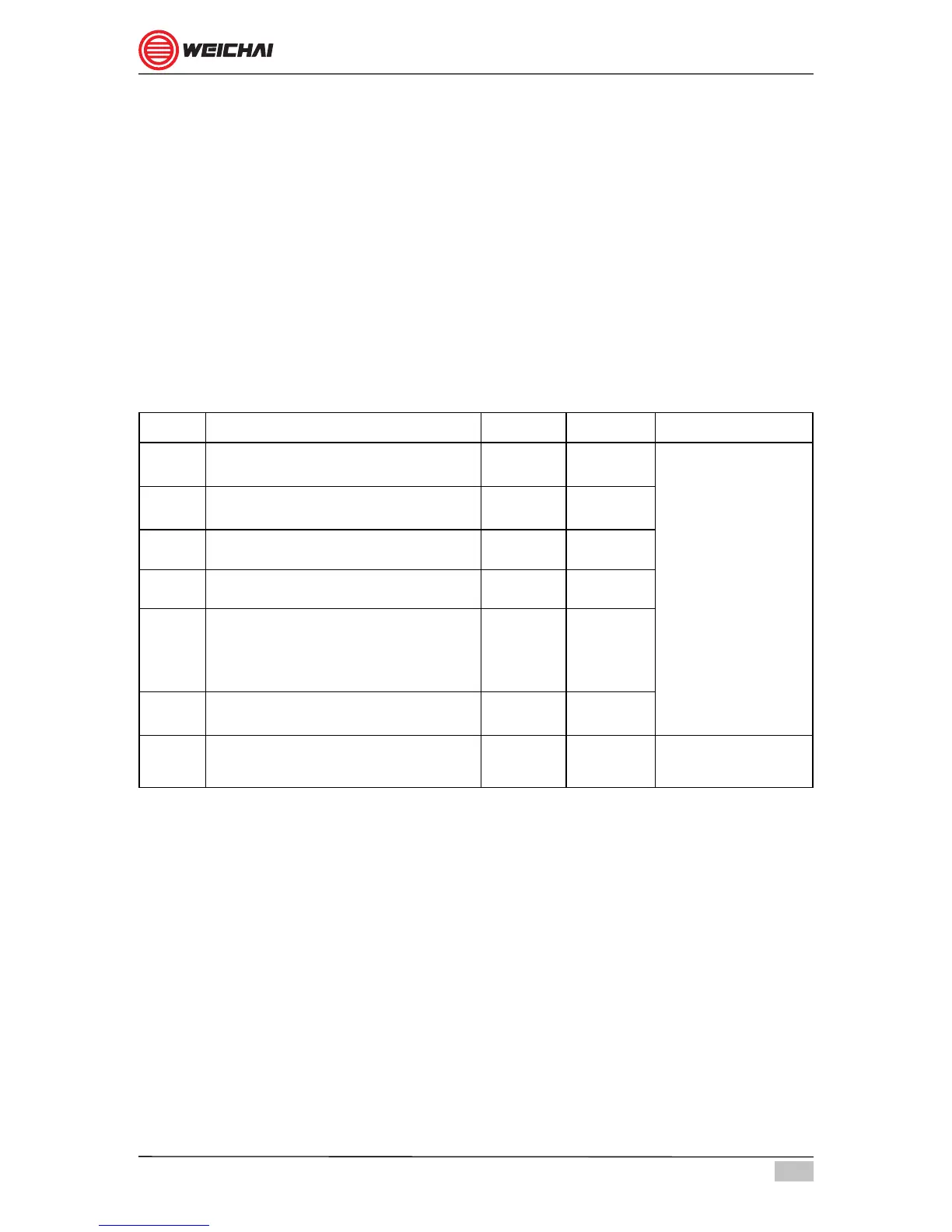50
6.5 Coolant
An engine coolant is a heat transfer uid which ows through or around an engine
to prevent its overheating, transferring the heat produced by the engine to radiator
/heat exchanger that dissipate it. An operating engine typically converts only one
third of the energy derived through the combustion of fuel into work. The other
two thirds is converted into heat, of which one third goes out with the exhaust and
remaining one third is removed by engine coolant. The coolants absorbs this heat,
transports it to the radiator/heat exchanger and dissipate it into the environment
/atmosphere.
Research has shown that 40% of all engine problems in high speed diesel engines
are related, directly or indirectly, to improper cooling system maintenance Select
the correct coolant water as per table 6.5.
Sr.No Quality parameter Min Max Remarks
1 PH value 6.5 8.5
Water meeting
this quality
standard must
be used to
mix with reco
mended
coolant
concentrate
2 Chloride ion content, mg/dm
3
- 100
3 Carbonate content, mg/dm
3
- 100
4 Total ion content, mg/dm
3
- 150
5
When using long –term
anti-freeze uid,
total hardness, mg/dm
3
3 12
6 Carbonate hardness 3 -
7
When using the anticorrosive
agent, total hardness, mg/dm
3
0 10
Table 6.5
Regular cooling system maintenance is vital to keep an engine running properly.
Correct coolant maintenance is the key to reduce operating costs, minimize engine
downtime and ensure better reliability and durability from engines and cooling
systems alike.
6.6 A good coolant should have following properties
• Overheating and antifreeze protection
• Excellent scale, rust and corrosion protection
• Harmless to water pump seal, hoses and gaskets
